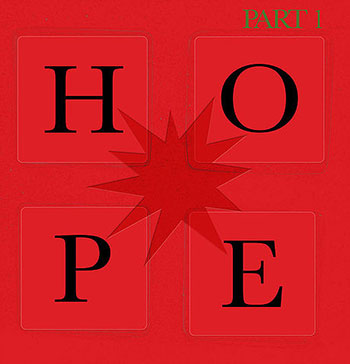In today’s times, many people are looking for something or someone to give them hope.
When they cannot find hope, their lives become hopeless. Too often this hopelessness leads them to self defeating behaviors and habits, which wreak havoc upon their lives.
Before long, desperation sets in and most will seek the advice and counsel of anyone who will tell them something that makes them feel better. Unfortunately, most of the people in this situation never ask the question, can hope be found in the Bible?
Worse yet, those offering help are usually just as blind to knowing the answer to this question and it is just a matter of time before they both end up in the ditch (Matthew 15:9-14).
The word hope is mentioned 130 times in the KJV, 121 verses in the Bible. In many verses where it is used it is used in the traditional sense in communicating a desire of some good as mentioned in Websters 1828 dictionary:
HOPE, n. [L. cupio.]
A desire of some good, accompanied with at least a slight expectation of obtaining it, or a belief that it is obtainable. Hope differs from wish and desire in this, that it implies some expectation of obtaining the good desired, or the possibility of possessing it.
Hope therefore always gives pleasure or joy; whereas wish and desire may produce or be accompanied with pain and anxiety.
Confidence in a future event; the highest degree of well founded expectation of good; as a hope founded on God”s gracious promises; a scriptural sense.
HOPE, v.i.1. To cherish a desire of food, with some expectation of obtaining it, or a belief that it is obtainable.
Hope for good success
However, the Bible is more specific about its definition of the word hope. In the New Testament the vast majority of the verses link hope to salvation by grace through faith in Jesus Christ (1 Thessalonians 5:8; Romans 8:23-25). Of particular note is Hebrews 11:1 as follows:
Hebrews 11:1 KJV) “Now faith is the substance of things hoped for, the evidence of things not seen.”
In this verse faith is defined two ways. First, as “the substance of things hoped for” and second, as “the evidence of things not seen.” In the first definition, faith is what creates our hope. However, to have faith, we must have something that we can trust. The Bible tells us how this works as follows:
(Romans 10:13-17 KJV) “For whosoever shall call upon the name of the Lord shall be saved. (V14) How then shall they call on him in whom they have not believed? and how shall they believe in him of whom they have not heard? and how shall they hear without a preacher? (V15) And how shall they preach, except they be sent? as it is written, How beautiful are the feet of them that preach the gospel of peace, and bring glad tidings of good things! (V16) But they have not all obeyed the gospel. For Esaias saith, Lord, who hath believed our report? (V17) So then faith cometh by hearing, and hearing by the word of God.“
In these verses, we are told that when we call upon the Lord, Jesus Christ, we shall be saved. It does not say might be saved, it says shall be saved. To call upon the name of the Lord, we must be able to trust Him. We learn to trust Him by reading the Word of God, the Bible (Romans 15:4 ‼️). This is because the Bible, the Word of God, is Jesus Christ (John 1:1, 14).
After all, real hope is not like a lottery ticket that you scratch off and “hope” you win.
With Jesus Christ, it is a sure thing. Something you can count on. The symbol for hope used by ancient Christians is an anchor. This is because hope in Jesus is a sure thing that holds fast and protects us as a refuge in the worst of storms (Isaiah 25:1-4; Hebrews 6:18-20).
Simply stated, when we trust the Word of God, we trust Jesus because the Word of God testifies of Him. When we hear His Word and believe it, we will not come into condemnation, but have everlasting life (John 5:24). It is this truth then that is the substance of our faith in Hebrews 11:1
The Foundation for Bible Verses About Hope
For God so loved the world that he gave his one and only Son, that whoever believes in him shall not perish but have eternal life. — John 3:16 (NIV).
What makes this the most sought-after verse in the Bible? Perhaps we fear that Job was right:
My days are swifter than a weavers’s shuttle, and they come to an end without hope. — Job 7:6 (NIV).
The John 3:16 passage gives people a ray of hope that there is certainly more to life than what Job saw. This longing for hope is why the Jeremiah passage is so important to people:
For I know the plans I have for you. declares the Lord, plans to prosper you and not to harm you, plans to give you hope and a future. — Jeremiah 29:11 (NIV).
We want to know that God has a plan for us, and that there is hope for a hopeless world.
What John 3:17 does is that it offers a glimpse:
For God did not send his Son into the world to condemn the world, but to save the world through him. — John 3:17 (NIV)
Hope comes, not as a blanket promise, but under a condition. We must come to Jesus and find salvation through him.
The Jeremiah passage also offers conditions for the hope people seek:
Then you will call on me and come and pray to me, and I will listen to you. You will seek me and find me when you seek me with all your heart. — Jeremiah 29:12-13 (NIV)
Next week in the New Year, we will finish this short message of Hope.
Until then,
Pastor John

